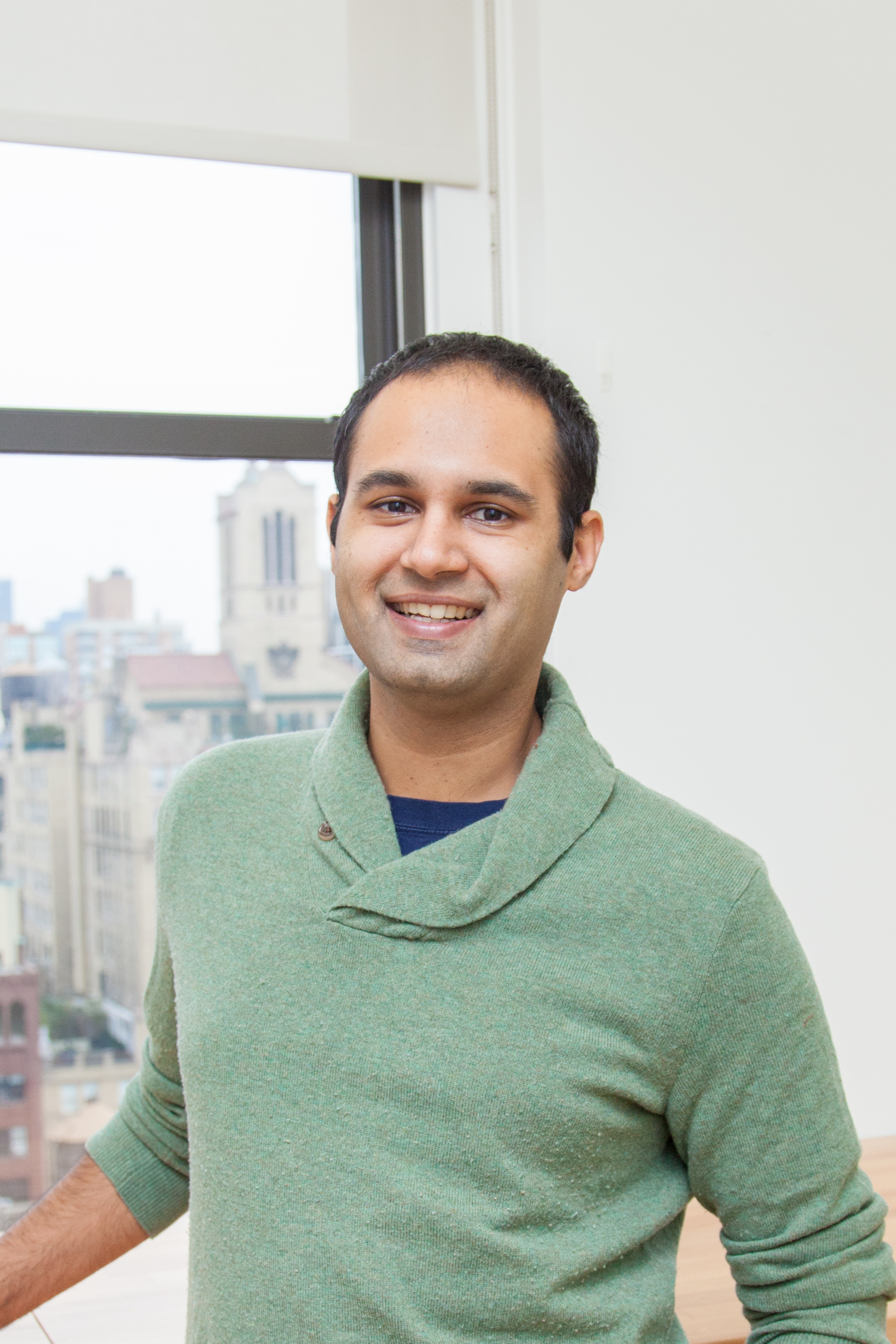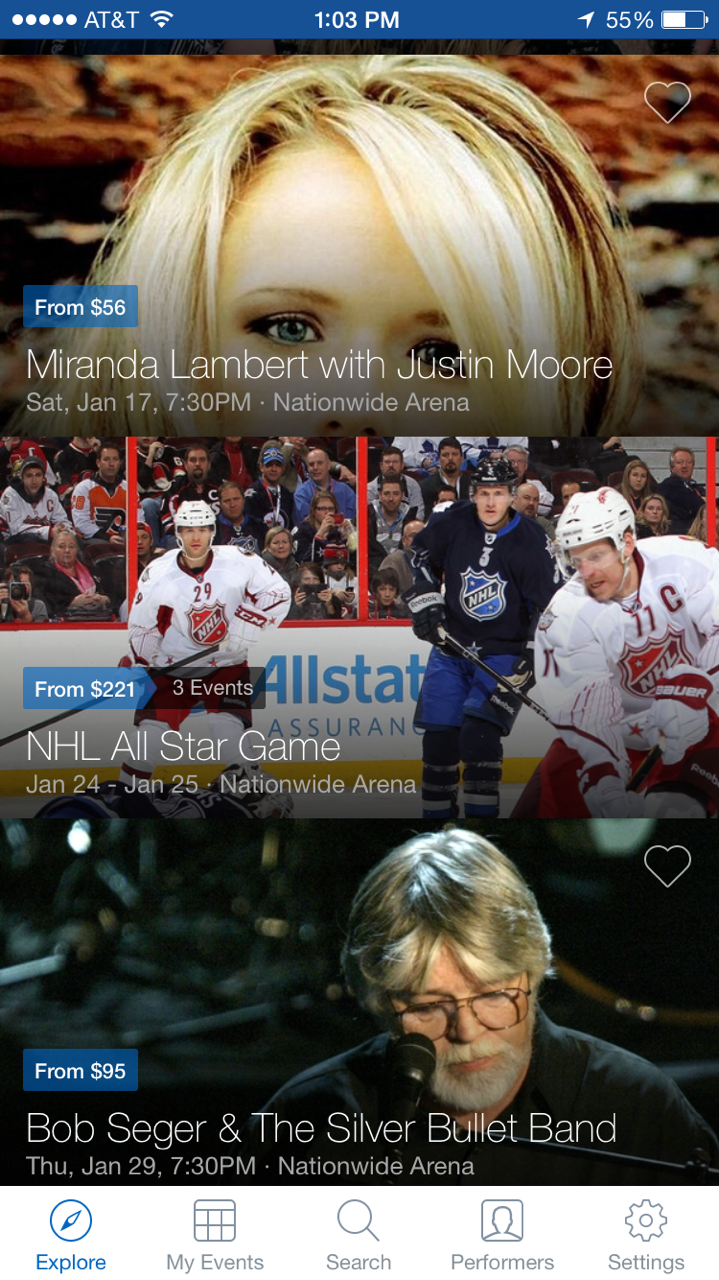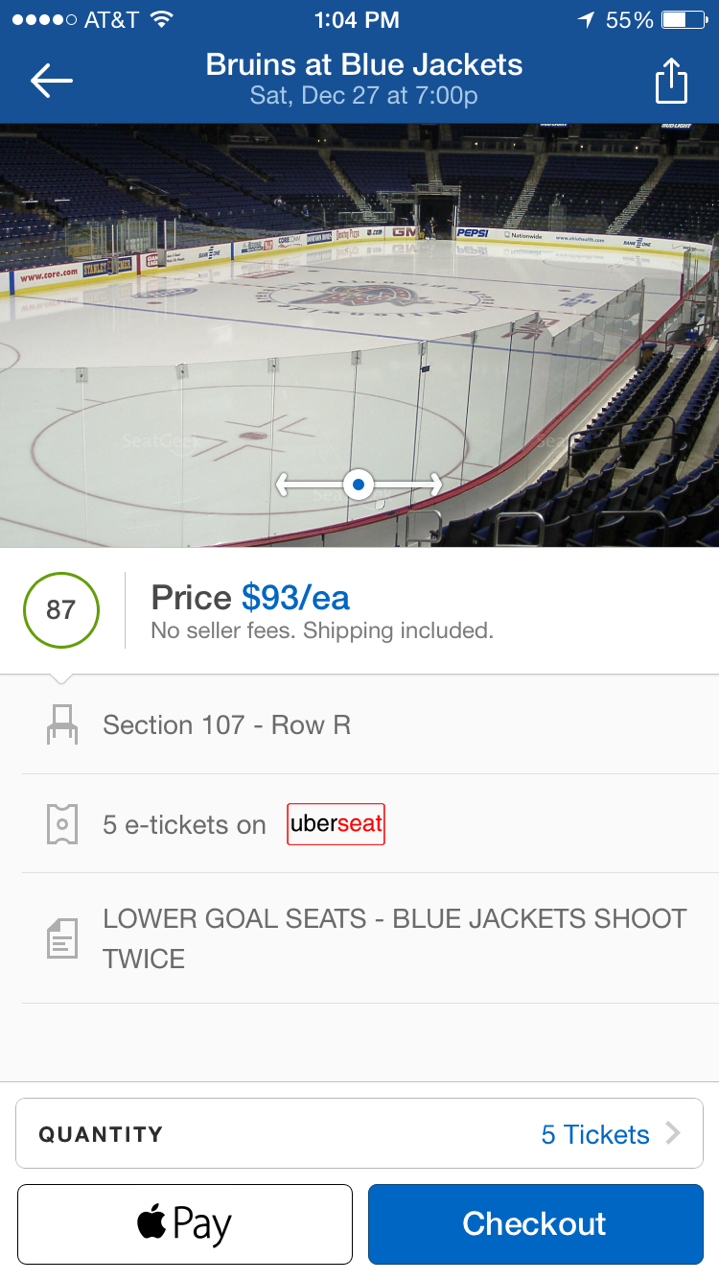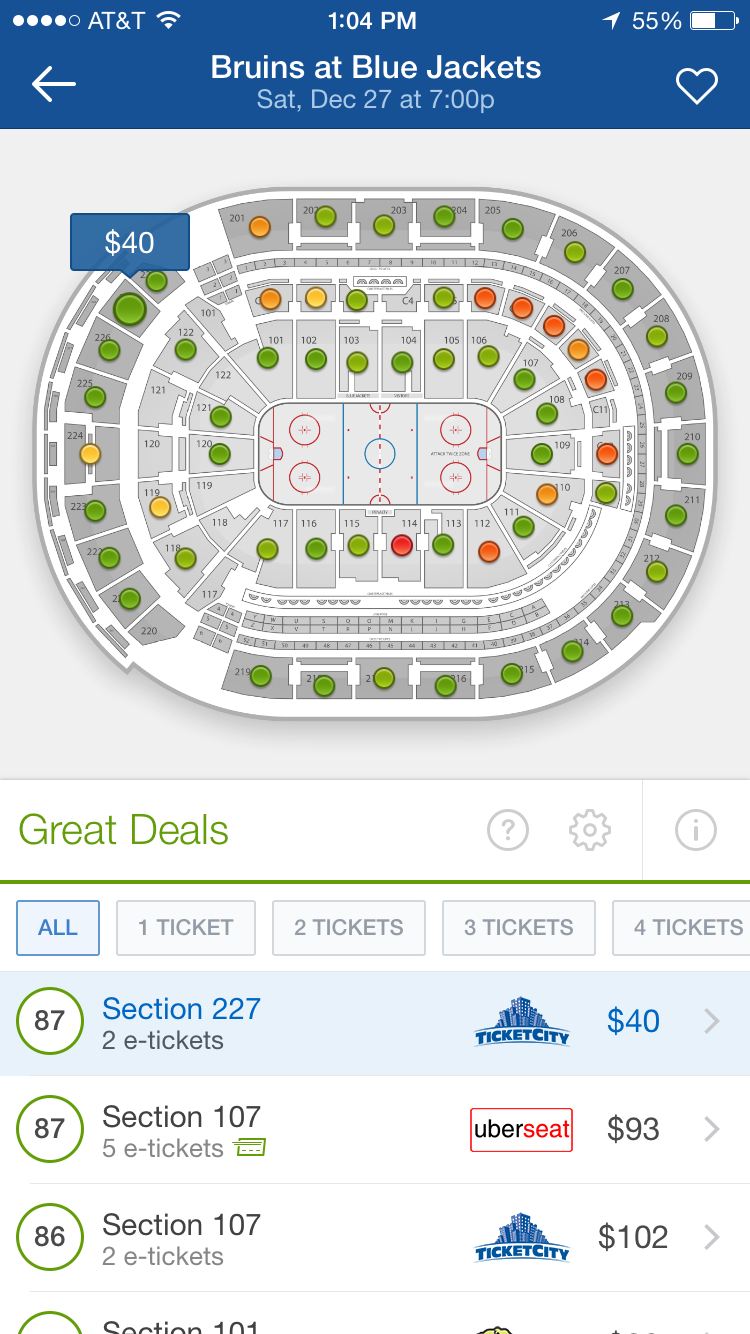
Founded in 2009, SeatGeek is rapidly becoming one of the most widely used platforms to purchase sport, concert and theater tickets, largely due to their initial focus on creating a mobile experience for their customers that far surpasses their competitors. By the end of 2014 the company expects to bring in more than $160 million in sales; not bad for a company that is just over five years old.
To learn more about this “growth champion” the National Center for the Middle Market sat down with SeatGeek co-founder Russ D'Souza.
Tell us a little bit about SeatGeek.
 What was the impetus for founding SeatGeek and how has it grown over time?
What was the impetus for founding SeatGeek and how has it grown over time?
Russ: SeatGeek started in 2009 as a way to search for sport, concert, and theater tickets and the premise hasn’t changed. The opportunity we saw was that in the airline space and other verticals, there were meta-search companies that were emerging. Meta-search companies are ones that search on behalf of a user across different sites. We thought that ticketing should have something like that where you have a one-stop shop for an industry that is actually quite fragmented. So we built that search tool, and we now pull real-time feeds from a bunch of different providers to show those tickets to users.
The way we’ve changed over time has really been around mobile. When we founded SeatGeek in 2009, nobody was really building mobile apps. When we launched the app in 2012, we were one of the first ticketing companies to have one. Today, mobile is driving our company’s growth and it’s what we’re betting our future on. We think that what will drive SeatGeek to become a huge company is the fact that people love interacting on their phones. People expect to be able to do things on their phone. There’s a huge opening in the market for a company that brands itself and becomes the premier app to buy tickets on your phone. We want to become that.
With many other players in the ticket exchange industry, how does SeatGeek differentiate itself?
Russ: Our business is heavily mobile; 70% of our traffic is mobile. What we’re built for is this great mobile experience. We’re the first company to ever put interactive maps on a phone. Users love being able to see where they sit. They expect this out of websites but no company had ever built this for people’s phones. What’s driving a lot of usage is people downloading the SeatGeek app, firing it up, being able to see exactly where they are going to sit, and in a couple of taps, buy their tickets.
The way we distinguish ourselves from the ticketing industry at large is that we see ourselves as being a prototypical tech company that happens to be in ticketing. I know that sounds like a weird and subtle difference compared with how other companies may phrase how they do business, but I think it’s really important. The type of talent that we’re looking to have join our team are the type of people who would be choosing between places like Facebook and Google and went to places like Stanford and Harvard. The engineering and marketing talent we’re trying to hire are the same type of people who are looking to join a true tech start-up.
I think that’s different than the focus of a lot of other ticketing companies. They are established brands that have been around for a while and they’re pulling from a different audience of people in order to staff their team. Their focus is less on hiring the best engineers in the world and more around supporting the product that they already have in place. New product development is not what drives every waking moment of their day.
 What factors have been instrumental to SeatGeek’s impressive growth over the last few years?
What factors have been instrumental to SeatGeek’s impressive growth over the last few years?
Russ: Our customer acquisition has gone through three stages and we haven’t even entered the final stage yet. The first stage is when we were just growing organically. We had people on the site, they loved the app, they came and bought tickets, and then they told their friends. We had a lot of partnerships, and that drove traffic too.
The second phase, and the one that we’re currently in, is all about paid app installs. Because we have this great app which we humbly think is the best in the industry, we want as many people to download it and use it. What we found is that over time, these people not only use the app but they also go to the website and buy tickets there too. For us, app downloads have been a great way for people to discover SeatGeek and use the product. They inevitably realize that there must be a counterpart to this app, which has caused our web traffic to go up as well.
The channels that we use for app installs are the ones you might expect – Facebook, Twitter, and different ad networks which have been phenomenal at driving lots and lots of app installs and driving users who are transactional.
The final phase that we’re entering into is around building a huge consumer brand. Right now, SeatGeek doesn’t spend any money on brand building. In the next year, we’re going to launch a very large and formal marketing plan to grow the SeatGeek brand and make us top-of-mind for users that are trying to buy tickets.
How does SeatGeek approach customer analytics and how has it been used to shape strategy?
Russ: Going back to mobile app installs, what’s really powerful there is that you can track the user so well. Every time somebody downloads the app, you know who they are. You can really see their behavior over an extended period of time even if they never sign up for an account. Being able to trace them from the moment they download the app to each individual ticket purchase has really enhanced our data capture abilities.
On the web, your options are more limited because cookies deteriorate and people use different browsers. It’s harder to track people over time vis-à-vis mobile apps.
What technology innovations are impacting the industry and how are you incorporating these into the business?
Russ: At the risk of beating a dead horse, I think there’s a lot of things on mobile that are going to come up which are really interesting. I foresee SeatGeek one day having a role beyond the user buying the ticket and that role being useful once you’re at the event. I can imagine beacons being pretty interesting.
And a big thing is going to be Apple Pay. So we want people to buy tickets – even if they are buying tickets through another company – to buy through the official SeatGeek app. Apple Pay will allow that to occur quite easily.
What opportunities does SeatGeek offer its employees to grow their own skillsets and competencies?
Russ: One of the most important things for me is the culture of the team. We want people who have been here for a long time. We’ve done a great job at employee retention; I think we’ve lost only a couple people in the five years since we’ve started. Many of the employees who started three months after we launched in 2009 are still here today and have been elevated to different positions in the company because they've shown just an incredible amount of skill and versatility.
But you have to think very critically about how to challenge and motivate people who have been here for a very long period of time. They are such a core part of the team and you want to make sure that they come to SeatGeek with even more enjoyment and excitement than the day they first started. We are always thinking about projects that give them more freedom and more of an opportunity to shine.
One thing that differentiates us from other middle market companies is that we act like a start-up so we’re all about growth. We’re doing about a quarter of a billion dollars in ticket sales a year but our goal is to get to that billion dollar mark. We need to get there as fast as possible. What that means is that there are so many large, ambitious, difficult projects that arise. It’s rare that someone doesn’t feel challenged at SeatGeek. You come to work and there’s just so much that can be done.
I think that’s helped so much with retention and people taking ownership of their job. There’s this constant momentum and it never really slows down.
What advice do you have for other middle market executives who are looking to grow their business?
Russ: It echoes some of what I was saying before. It’s so important to have a great culture where people feel ownership of the product and what they’re building, and also a culture where they genuinely enjoy and cherish each other. Ultimately, as a small company, the output that you’re going to have is directly correlated with the people that you hire.
Hiring is a very costly activity and it takes up a ton of time. How terrible is it to go through a process where you hire somebody and then a couple of months later, they leave? That’s the worst thing that you can imagine because you spent all this time recruiting them, winning them over, and training them. So we spend a lot of effort making sure that everyone at SeatGeek is happy, challenged, and is adding to a culture where people want to build a career.
What’s the next great frontier for SeatGeek? Where do you see the company in the next five years?
Russ: Three years ago, the idea of building a huge company that’s very mobile focused -- people never thought that would happen. There was initial apprehension that users would spend significant amounts of money on their phones. What we’ve found is that – through our app – our conversion rate is as high as it is on desktop. The amount that users spend on the app is roughly equivalent to what their spending on desktop.
You haven’t yet seen companies emerge that are totally mobile. Uber is probably the most prominent example today. They’re the most mobile-focused company that does huge amounts of revenue. But there are not many of these types of companies; there’s only a handful.
There’s a stalwart group of companies that have been around for a long time – your traditional e-commerce companies – that could be disrupted in this new age. I’m thinking of companies like Amazon and eBay. We’re obviously not competitors with them. But I’m seeing this mega-trend of companies emerging with a focus on mobile that are winning in this new frontier.